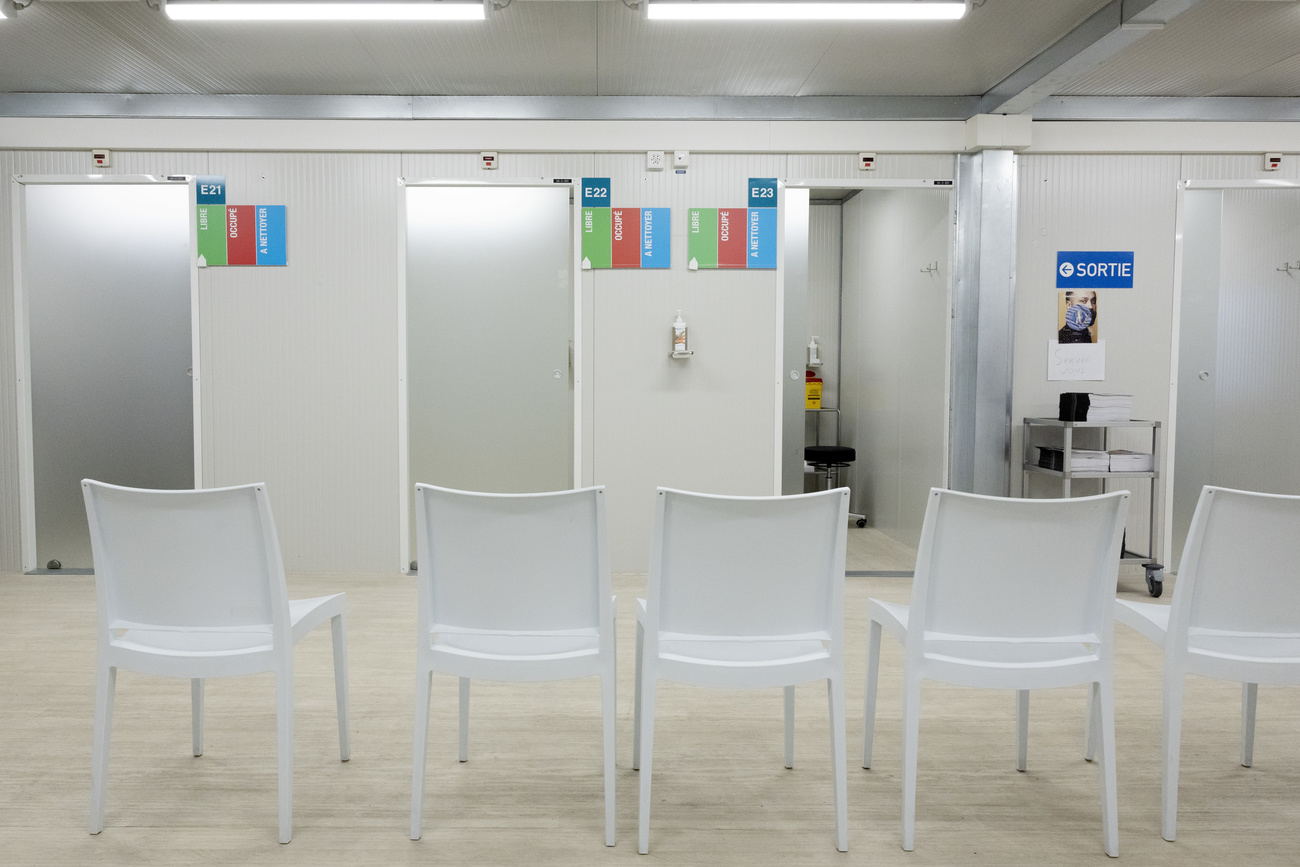
A ‘no’ vote forecast for the ‘environmental responsibility’ initiative

With the campaign barely underway, almost half of Swiss residents and expats polled are unconvinced by the environmental responsibility initiative. The initiative, which calls for the economy to respect the planet's limits, is heading for defeat at the ballot box on February 9, according to the first SBC poll.
A bad start for the Young Greens’ initiative, which aims to oblige the Swiss economy to operate within the limits of nature.
With just under two months to go before the vote on February 9, a relative majority of 49% of Swiss citizens are opposed to the initiative, while only 45% are in favour and 6% are undecided, according to the first Swiss Broadcasting Corporation (SBC) poll conducted by gfs.bern.
The Young Greens’ proposal also failed to win over a majority of Swiss Abroad. However, the diaspora, which usually tends to vote more green, is slightly more in favour: 48% support the text, 47% are against and 5% have not yet made up their minds.
The initiative strongly polarises opinion. Supporters of the left-wing parties and the Liberal Greens clearly support it, while the those who vote for right-wing and centre parties overwhelmingly reject it.
The opinion poll also shows that the text divides women and men, with 56% of women in favour and 59% of men against. “This is in line with a well-established trend: women are more inclined to support the environment,” comments gfs.bern political scientist Martina Mousson.
The survey also shows that the majority of young people support the text and are more mobilised than usual. This is probably due to the fact that the initiative originated with the youth section of the Green Party.
The problem is recognised
While citizens are not convinced by the initiative, the majority do recognise the need to protect the environment. Two-thirds of the people surveyed by gfs.bern believe that we are already consuming tomorrow’s resources today, and that the foundations of our existence are therefore under threat.
However, the same proportion of people believe that implementing the initiative would create problems. In particular, they fear that prices will rise and with them the cost of living. This would run counter to the initiative itself, which calls on the public authorities not to take measures that would lead to social injustice.
“The problem is recognised, but the solution is not convincing. The deadlines and bans imposed by the text seem too rigid,” says Mousson. She points out that support for initiatives generally tends to decline during the campaign, which clearly suggests that the initiative will fail on February 9.
The fact that the initiative is the only issue to be put to the vote on that day could also work against it, according to Mousson, as voter mobilisation is generally lower when federal votes revolve around a single issue.
For the first survey ahead of the national referendum on February 9, 2025, gfs.bern questioned 18,845 voters between December 2 and December 16. The statistical margin of error is between +/-2.8 percentage points.

In compliance with the JTI standards
More: SWI swissinfo.ch certified by the Journalism Trust Initiative









































You can find an overview of ongoing debates with our journalists here . Please join us!
If you want to start a conversation about a topic raised in this article or want to report factual errors, email us at english@swissinfo.ch.